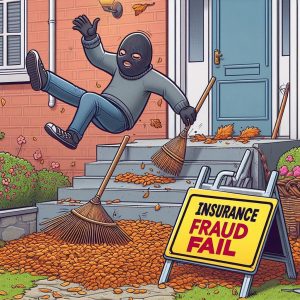Utmost Good Faith Binding Between Insured and Insurer Part II
What is Fraudulent Misrepresentation?
Fraudulent misrepresentation, also known as concealment, happens when the insured fails to disclose important information. For an insurance company to deny payment due to concealment, it must prove that:
- The insured knew the fact was crucial for the insurance being applied for.
- There was an intention to defraud the insurer.
Misrepresentation and concealment are strategies often used by high-risk individuals. These tactics lead to adverse selection, causing insurance companies to increase premiums for everyone.
Concealments
In simple terms, the insured must disclose all material facts to the insurer, regardless of whether these facts would lead to acceptance or rejection of the risk. Insured individuals who intend to cheat the insurance company create many fraudulent claims. This results in insurers raising premiums for everyone, which is unfair to consumers, especially in cases like third-party motor insurance.
A Case from Two Decades Ago
Two decades ago, I met a young man whose family ran various businesses in a booming town. One day, he approached me and said, “Jamin, since you’re new to corporate marketing in the general industry, I’d like to introduce you to my brother, who operates a hotel here.”
“Sure, Mr. William. I’m happy to support your brother’s hotel business,” I replied politely.
Smooth Sailing
During our meeting, we chatted casually before discussing business. After a smooth presentation and some questions and answers, we closed the deal. In the fire proposal, there was a column asking if he had ever suffered a loss or made a claim on the risk now proposed or any other risk he owned. Mr. Robert answered “NO.”
After issuing a cover note and collecting the cheque, I left. However, my sixth sense told me something was not right. The deal was closed too quickly and easily, raising my suspicions. Mr Robert accepted all terms and conditions without any questions.
Doubt Arises
Back at the office, I scanned every detail of the insured’s documents, like forms 24 and 49. I discovered that in the previous company, XYZ, Mr. Robert was listed as a director in form 49. In the current company, WWW, he was only a shareholder and Chief Operating Officer in form 24. The previous hotel, XYZ, was located at the same address as the current hotel, WWW. The old hotel had been destroyed by fire, which was due to arson according to the adjuster’s report. The previous insurer had paid the full settlement of the fire claim.
Why had the insured changed insurers even though they received full payment? Moreover, Mr. Robert’s name was not on form 49 for the current hotel he managed. After much consideration, I informed the insured that we had to decline his offer and provided a full refund of the premium.

Risk Rejected
We rejected the risk due to the following reasons:
- The insured displayed a high moral hazard character.
- The previous insurer had turned down the offer from the insured.
High moral hazard plays a significant role in the insurance industry, leading to higher premiums for everyone.
Hiding the truth, especially in insurance, can have serious consequences.
Legal Consequences:
- Policy Void: The insurer can declare the policy void from inception, meaning it’s as if the policy never existed.
- Claim Denial: Any claims made on the policy can be denied.
- Legal Action: The insurer might take legal action against the insured for fraud.
Financial Consequences:
- Loss of Coverage: The insured loses the protection they thought they had, which leads to significant out-of-pocket expenses.
- Increased Premiums: If the fraud is detected, it may result in higher premiums for the insured in future policies and contribute to higher premiums for other consumers.
Reputation Consequences:
- Damage to Reputation: Being caught in a fraudulent act can damage the insured’s reputation, making it difficult to obtain insurance in the future.
- Difficulty in Future Transactions: Other financial institutions may be wary of doing business with someone who has a history of fraud.
Industry Consequences:
- Adverse Selection: It leads to a pool of higher-risk individuals, causing insurers to raise premiums for all policyholders.
- Strain on Resources: Investigating and litigating fraudulent claims consumes resources that could be better used elsewhere.
Ethical Consequences:
- Loss of Trust: It undermines the trust essential for the insurance industry to function effectively.
- Social Impact: fraudulent activities contribute to higher costs and premiums for everyone, impacting society as a whole.
Overall, hiding the truth can lead to significant legal, financial, and reputational damage and broader negative impacts on the insurance industry and society.
Conclusion
Fraudulent misrepresentation and concealment by insured individuals are serious issues. These actions not only affect the insurers but also lead to higher premiums for all consumers. It’s crucial to disclose all material facts to maintain the integrity of the insurance system.
If you enjoyed this article, please share it with your friends or family. Sharing doubles the joy. I welcome any suggestions or comments, or you can subscribe to my mailing list.
Please email me at [email protected].
Thanks

This is very informative about insurance fraud. What people would get up to!
Conman will never learn a lesson, as they have the right to claim insurance when they pay a premium.
This is very informative, and definitely an eye-opener. I had NO idea that Concealments was just another word for Fraudulent Misrepresentation. I enjoyed the story you mentioned, btw. By the looks of it, there’s so much that gets done behind closed doors with insurance companies and the like, it’s almost overwhelming. This was very different to what I usually read, but interesting, to say the least.
Thanks a bunch!
-Brandon
Thanks for reading my article and also the compliment. I did remember my law lecturer said Law taught you to be a bad guy. Insurance law teaches you to be master of all.